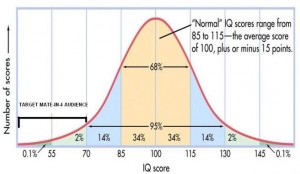A conundrum: a high school freshman earns a 2.5 GPA, with an A in math and PE, a B in tech skills, and a C in all the other classes that require reading: English, geography, religion and Spanish. The accommodations of extra time on all exams, particularly midterms and finals, as well as providing audiobooks through Learning Ally, are in place and utilized by the student. He is enrolled in the school’s Directed Study class, so he can have time to work on assignments and get help from a credentialed teacher.
He’s also a hard worker: a sincerely determined, hard-working young man who desires to go to college. He often stays up until midnight so that he’s prepared with all his homework for the next day. He is that someone for whom we put all these accommodations in place for so that he can succeed. (It’s important to maintain at least a 2.0 to stay at his private high school.) In fact, there are no modifications at all of the general education curriculum, other than he’s not taking science this year, and will take that in summer.
Getting Accommodations for College Entrance Exams
His mother wanted to make sure the same accommodations, or at least the extra time, would be in place, for college entrance exams. Extended time is also important to reduce his anxiety with taking timed tests, since he is a slow reader. She proactively approached the local school district to arrange for a psycho-educational evaluation, since it’s been 2 years since he had the last one. Looking at the College Board’s website, it says you must have a report that was done within the last three years (“Information is current”).
The school district’s representatives, though, warn that their assessment will probably not result in an eligibility of a learning disability… Based on his grades, he’s accessing the curriculum, so he won’t qualify for a specific learning disability, even if there is a large discrepancy between his cognitive ability and his reading ability.
Qualifying for Accommodations
 Here’s an infuriating part of the way psycho-ed evaluations are often summarized: scores across sub-tests are averaged, so this student looks like he has an IQ of 87 (measured by the WISC), because his verbal comprehension score was so low. However, he was average or above-average in the other areas. This same inequality exists in his academic achievement (measured by the WIAT-III); when you average all his scores, from oral comprehension to reading to spelling to writing to math to vocabulary, you get an average of 89. Please see this page for an explanation of scores used on psycho-educational reports.
Here’s an infuriating part of the way psycho-ed evaluations are often summarized: scores across sub-tests are averaged, so this student looks like he has an IQ of 87 (measured by the WISC), because his verbal comprehension score was so low. However, he was average or above-average in the other areas. This same inequality exists in his academic achievement (measured by the WIAT-III); when you average all his scores, from oral comprehension to reading to spelling to writing to math to vocabulary, you get an average of 89. Please see this page for an explanation of scores used on psycho-educational reports.
Based on those numbers, overall, he looks like a below average student. And he’s felt like a below-average person because of it. No one ever bothered to explain the subtest scores to him — which reveal that he is twice-exceptional. That he has some tremendous skills in certain areas, and that he has a future as an engineer or architect, or a soldier or a pilot, or many other things that he dreams about. He has anxiety because he doesn’t think he’ll ever get into a college because he’s too … dumb. It’s outrageous!
What is even more frustrating is the idea that the school district psychologist wouldn’t even state in the report that there was a discrepancy between subtests of the cognition test, or that his profile was clearly indicating a deficit in reading. Again, based on his good performance in his private school, the district psychologist warned that she’d have to disqualify him from having a learning disability, because despite uneven assessment scores, he’s accessing the curriculum, and doesn’t have any D’s or F’s.
Online Assessments – a New Solution?
This family is forced to go to a private psychologist and pay $3,000 – $5,000 (in Southern California — even more in other parts of the country!) for an assessment that accurately reflects his abilities, his strengths and his disabilities. In this particular case, this is a family with a single mom with limited means. I personally am excited about a new online program, Mindprint Learning, which does an assessment for $200 (!). I hope we can convince people in the College Board to use this assessment as a basis for needing accommodations in school and on tests.
In the meantime, we are back in the “wait to fail” before getting services once kids get to high school. Most high school students take their SAT/ACT scores very seriously. They agonize over whether they know enough or have studied enough; then they agonize when they hear that universities only look at students with top scores. It is hard to believe that we’ve come this far with getting accommodations in the schools, only to have a roadblock set up right before the highest-stake test is coming up. Let’s hope that school districts will be more willing to interpret psycho-ed assessments with an emphasis on subscores, and that schools and college boards will recognize that an online assessment can accurately measure cognitive potential, too.